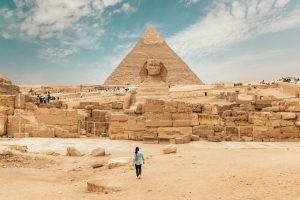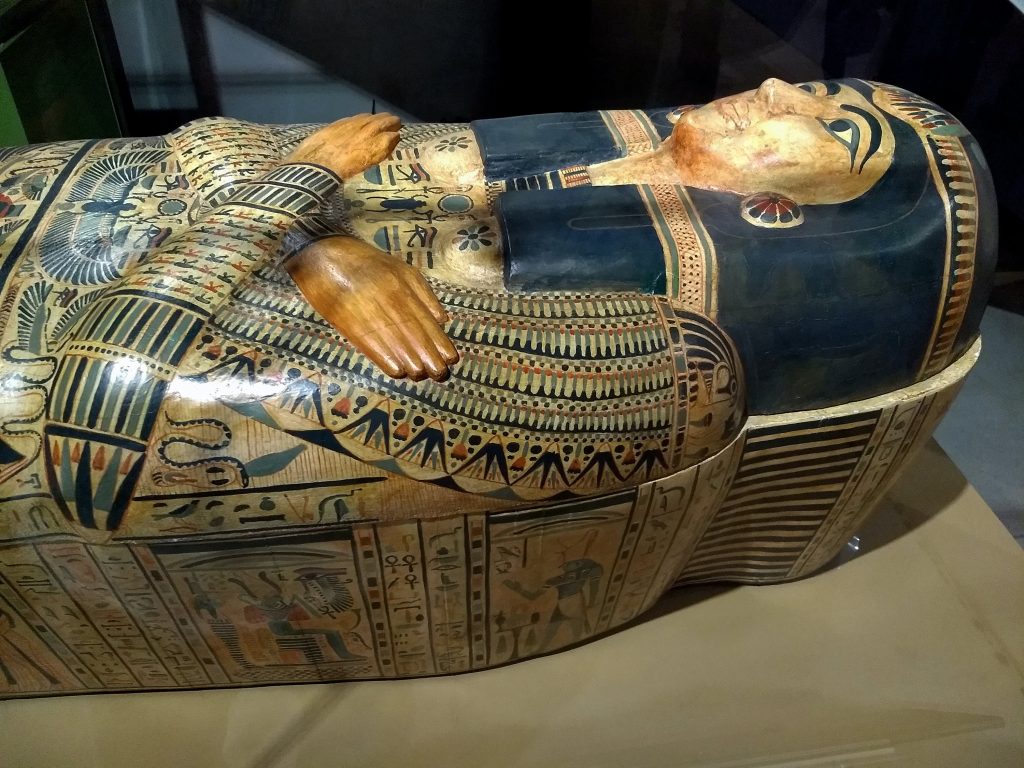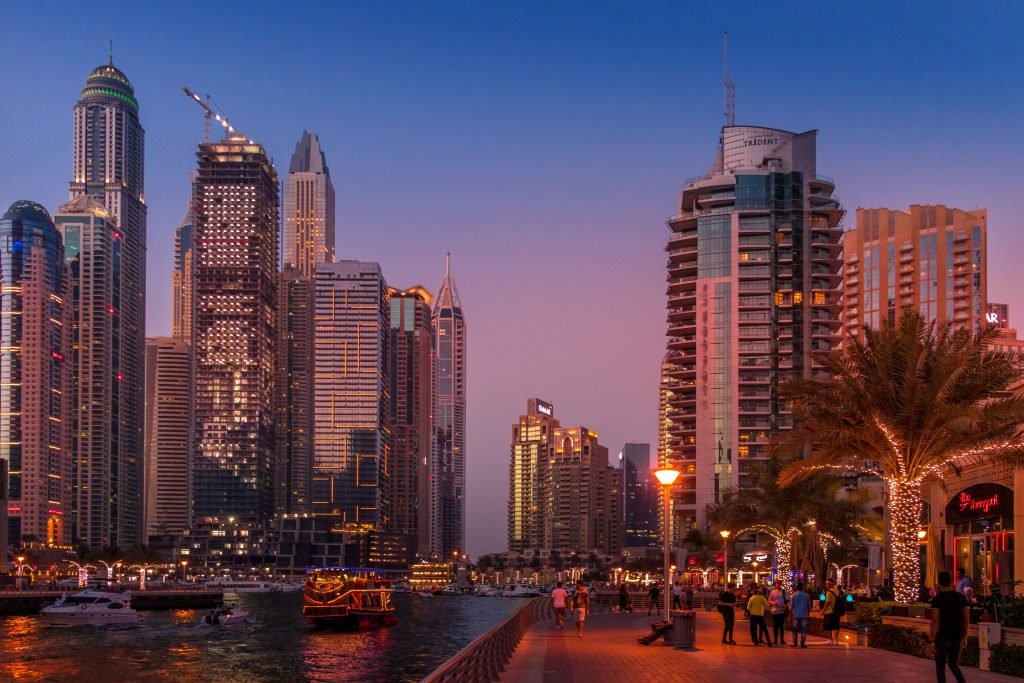Followers of Rania Al-Mashat on social media typically are inundated with new posts every few hours encouraging foreigners to visit Egypt. The World Travel and Tourism Council recognized that outreach by honoring the tourism minister with its Global Champion Award 2019. “This annual award is usually granted in appreciation of the efforts exerted by some countries facing challenges,” according to a WTTC statement. “This is the first time […] for a country or a minister in the Middle East to be granted such an award.”
In September, the World Economic Forum’s Travel and Tourism Competitiveness Index saw Egypt’s ranking jump from 74 to 65 on its list of most attractive tourist destinations. “Egypt had the best improvement among countries ranked 36 to 70,” according to the report, and was the “most improved” MENA country since last year.
The efforts are part of the Egypt Tourism Reform Program (E-TRP), which Al-Mashat announced last year. “Our plan to showcase contemporary Egypt involves several dimensions […] a modern digital and competitive promotion campaign, diversifying revenue streams and increasing the sector’s resilience abroad,” Al-Mashat said at an AmCham event in December.

To reach the program’s full potential, the government needs to work with the private sector more closely. According to Moody el Shae of the Chambers of Tour Operators, an industry body, the key is a unified message involving the public and private sectors.
For Elhamy ElZayat, former head of the Egyptian Tourism Federation, marketing Egypt for tourists has long used traditional methods. “There would be casual adverts on international channels such as CNN. Or a poster of Tutankhamun in Times Square in New York,” he says. “That needed to change, and with Al-Mashat that is what is happening.”
At the heart of Al-Mashat’s strategy, E-TRP is “people-to-people” marketing. “We want to showcase our people, including artists, on the international stage,” she said. “With enough interaction between locals and foreigners, you create a strong relationship between both countries, regardless of politics. That is how you create sustainable tourism.”
Accordingly, the Ministry of Tourism has focused on specific destinations and activities, targeting foreigners most likely to be interested. “This is ‘branding by destination.’ It replaces the previous ‘branding by location,’” she said. The result of that shift in thinking was that Hermes and Chanel both used pharaonic symbols and the pyramids to launch a prime jewelry line.
Another strategy for Al-Mashat is tailoring social media messages to region-specific platforms. “China has its own Facebook, Twitter, and social media platforms. Accordingly, we are on them with messages Chinese tourists care about,” Al-Mashat said. “We are currently targeting Southeast Asia as part of our diversification efforts.”
Another approach is to improve how the government and tourism businesses present themselves at international exhibitions and shows. “The key is not participating in every exhibition; It is about what is different about your stand,” said Al-Mashat, citing a conference in the United Kingdom last year. “The Egyptian corner had a virtual reality stand where visitors could walk around several of Egypt’s best-known sites.”
The last part of the development strategy is marketing Egypt’s environmental sustainability efforts. “Giving a ‘Green Certification’ to hotels raises their profile abroad,” said Al-Mashat. “Those societies prioritize visiting places that support efforts to protect the environment.”
During the AmCham event, Al-Mashat highlighted the Grand Egyptian Museum as a “marketing event unto itself.” For her, the plan for an extravagant opening ceremony will be a type of traditional marketing approach that the ministry must not neglect despite newer strategies.

Private view
Some private sector players have concerns. ElZayat worries about the plan’s flexibility. “When talking about tourism, the plan must be flexible enough to change every year or if there is a major development in the country,” he says.
He, however, is more concerned about what’s next. “It must be a logical and connected step to the work that we are doing right now to attract culture tourists,” he explains, adding that the state must not spend too much time on historical tourism. “The state must promote all types of tourism with close attention to each if it wants to reach the country’s full potential.”
Two other factors will ultimately dictate the Ministry of Tourism’s core strategies and policies. “One is the type and location of tourists; the other is affordability,” says ElZayat. “Those will ultimately determine the types of tourism and hotel investments the government wants.”
El Shaer of the Chambers of Tour Operators hopes to see a fundamental change in how the Ministry of Tourism operates. “We need to give each tourism destination or [governorate] a separate budget with a mandate to increase revenues,” he says. “They would develop specific messages, the strategies to deliver it and the types of tourists they want.” Luxor and Aswan, for instance, would attract very different tourists from Sharm el Sheikh and Hurghada.
Many in the industry say the ministry should adopt a similar approach when dealing with international travel agencies. “Pick two or three per country, then task each with attracting a certain number of tourists in return for incentives. Accordingly, the ministry’s strategies at that time would dictate the stimulus package,” says El Shaer. “The key to this strategy is to eliminate any bureaucracy when reimbursing those agents. That is because those agencies would wield a lot of power over the tourists’ decisions regarding where to travel.”
ElZayat and El Shaer agree about the importance of going to international exhibitions to showcase Egypt. However, Remon Naguib, an international marketing professor at the Faculty of Tourism and Hotels Helwan University, warns that exhibitors must not get carried away. “There must be a focus surrounding what the exhibition wants to highlight,” he says. “We can’t, and shouldn’t, aim to showcase every type of tourism Egypt has.”
Next step

Looking ahead, it is still unclear what the ministry will do after the dust settles on the opening of the Grand Egyptian Museum in 2020 and the development of the Giza Plateau.
El Shaer believes marketing Egypt’s more modern culture would be the perfect next step. “I believe that celebrity tourism could have a great impact abroad,” says El Shaer. “It is the fastest way to build an image for a country.”







